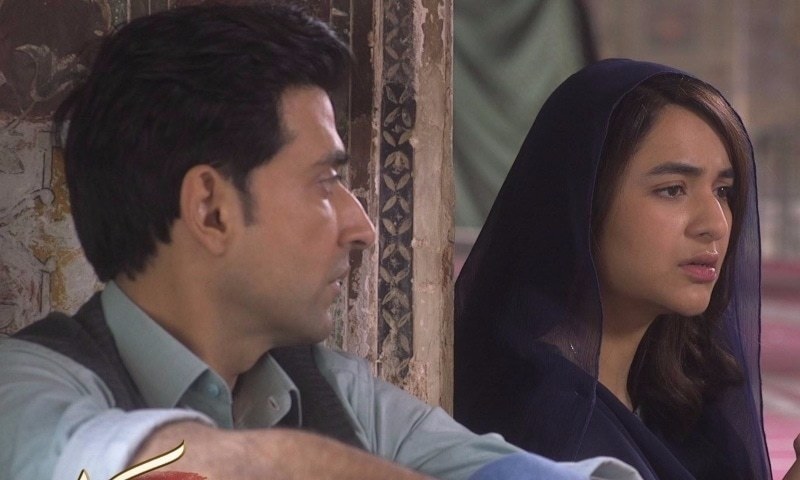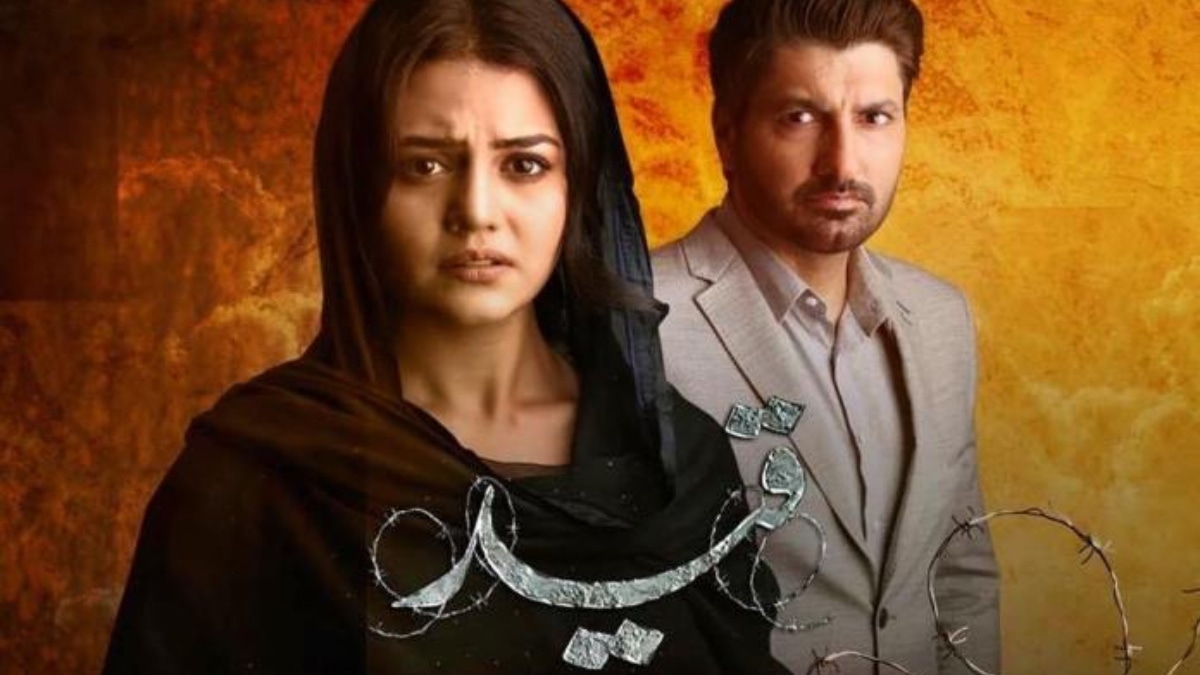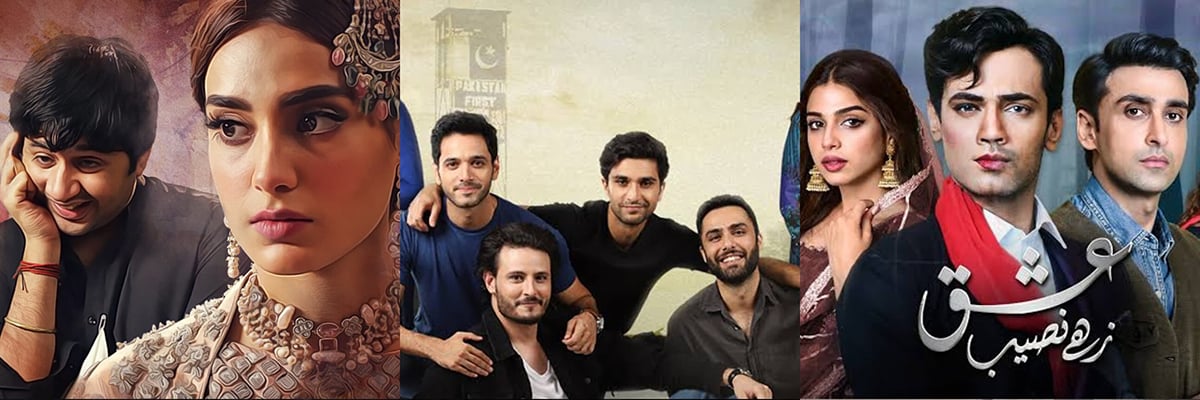What made a good drama in 2019? Here are the top picks
As far as dramas were concerned, 2019 had a lacklustre start, with little to no innovation and an overdose of the same, formulaic stories made over and over again for prime time viewing.
This year’s favourite theme seems to have been the chalaak larki vs bholi larki standoff — and it seems that everyone lapped it up.
Soaps like Bharosa Pyaar Tera, Ayy Dil Tu Bata and dramas like Gul-o-Gulzar, Koi Chand Rakh, Hassad, Yariyaan, Ramz-e-Ishq, Kahin Deep Jalay, Mohabbat Na Kariyo, Jaal, Do Bol and more got big ratings.
Though none were particularly enlightening, they were the kind of easy-to-digest entertainment that keeps channels financially solvent. Some, like Ay Dil Tu Bata, Gul-o-Gulzar and Kahin Deep Jalay, Hassad, Malaal e Yaar, Piya Naam Ka Diya had decent, if predictable, scripts and good performances to enjoy, raising them up from just guilty pleasures to good dramas that could have been contenders with a little more effort.
An unfortunate and worrying new trend of Trojan horse-like serials emerged this year. Certain dramas entered our viewing screens supposedly highlighting social issues, but ended up actually reinforcing regressive and frighteningly misogynist ideas they claimed to be fighting. Haiwaan, Inkaar and Qaid all started out with strong story ideas — but fizzled out with ends that easily absolved the perpetrators of rape and abuse while laying the burden of guilt on victims.

Qaid was the most glaring example, which actually began on an interesting premise: the way bullying text messages can trigger vulnerable individuals. even pushing them to suicide. However, the resolution of the story went from ridiculous to downright frightening as the heroine willingly submits herself to physical and mental abuse at the hands of her husband and in-laws, so they can exact revenge for the suicide of their young son.
The worst part was the way the drama makers glorified the heroine’s suffering, even inserting dialogues that made it plain that she was waiting patiently for her husband to tire of punishing her. This kind of twisted, poisonous thinking is dangerous and both producers and artists should think hard about their ethical responsibilities beyond career advancement and ratings.

So, what makes a good drama? First, let's admit a few dreadful truths.
Not every popular drama is good. Well-made pulp fiction — which remixes the audience’s favourite themes — can get ratings, but that doesn’t guarantee it a place in the hall of fame.
On the flip side what some would consider a high-end drama can end up amongst the also-rans because of long monologues, a slow pace and a basic failure to actually entertain audiences.
A really good drama is defined by solid performances, a well-written, well-plotted script that reaches beyond the usual melodrama and stereotypes, characters we can connect with and, most importantly, it has to be entertaining enough to draw us in every week.
Best dramas of 2019
Our top picks
- Ehd-e-Wafa
- Alif
- Ranhja Ranjha Kardi
- Cheekh
- Khaas
- Ishq Zehe Naseeb
- Khud Parast
- Yeh Dil Mera
- Ruswai
Standout performances: Female
Ladies, what can we say, except "you win"? Skillful, detailed and utterly believable, there was a constellation of fantastic performances, each proving how incredibly talented Pakistani actresses are.
Saba Qamar surprised us with one of her most restrained but powerful performances to date, followed by an equally strong showing from Sanam Baloch. Meanwhile, Yumna Zaidi, Sajal Aly and Iqra Aziz gave us some memorable, multi-layered characters this year that makes it incredibly hard to choose between them.

Kubra Khan as the ill-fated Husn-e-Jehan was quite a change for the young actress and she lived up to the challenge, making an impact in this smaller role. Sana Javed's performance lost points on authenticity when she admitted to not doing the research required, but her screen presence and energy are the heart of Ruswai’s success.
Now, the good girls can sit down and let us give a shout-out to the fantastic portrayals of bad, bad girls this year. Ramsha Khan, Ushna Shah and Areej Fatima were frightening, powerful and so bad they gave love a bad name, but their performances had us enthralled in Khudparast, Bewafa and Hassad.
A special mention is necessary for Hira Tareen as the selfish Salma who was the delicious comeuppance for the nasty in-laws in Khaas. The Queen Bee of bad girls this year was Ayeza Khan’s Mehwish, who gave us a flawless portrait of an ice-cold narcissist,who does what she pleases whether right or wrong.
Our top picks
- Saba Qamar — Cheekh
- Ramsha Khan — Khudparast
- Sanam Baloch — Khaas
- Sajal Aly — Aangan
- Iqra Aziz — Ranjha Ranjha Kardi
- Areej Fatima — Hassad
- Kubra Khan — Alif
- Ushna Shah — Bewafa
- Sana Javed — Ruswai
- Hira Tareen — Khaas
- Ayeza Khan — Mere Pass Tum Ho
Standout performances: Male
Pakistani actors continue to make us proud, defying the closed system of women-oriented storytelling to bring us nuanced, layered performances that made so many characters stand out.
Osman Khalid Butt's finely tuned portrayal of Shahzain has made us laugh, cry and even root for what is essentially a very grey-shaded character. Bilal Abbas was simply sensational as the spoiled, conniving rich boy who goes that one step further from misguided to evil.

Zahid Ahmad was a standout, with his portrayal of multiple personality disorder, while Ali Rehman’s one-track narcissist had us enthralled in Khaas.
Ahad Mir as the conflicted Jamal proved he is more than just good looks, while Humayun Saeed proved once again what a good actor he is in Mere Pass Tum Ho. Hamza Ali Abbasi’s search for meaning in Alif may have been a little close to home but, his performance is sincere and one of the reasons this show is so compelling.
Last but never least, Adnan Siddiqui as the mysterious bad guy Mir Zaman of Yeh Dil Mera is yet another strong performance from this incredibly versatile actor.
However, the year belonged to one actor alone, Imran Ashraf, who once wrote on his Facebook page that someone had told him he would always be a supporting actor, never the lead — but look at him now.

His exceptional performances in Jaal, Inkaar and the crowning portrayal of Bhola in Ranjha Ranjha Kardi has made him not just a household name a but a solid star who can make any role shine.
Our top picks
- Imran Ashraf — Ranjha Ranjha Kardi
- Zahid Ahmad — Ishq Zehe Naseeb
- Humayun Saeed — Mere Pass Tum Ho
- Osman Khalid Butt — Ehd E Wafa
- Ahad Mir — Aangan
- Bilal Abbas — Cheekh
- Hamza Ali Abbasi — Alif
- Ali Rehman — Khaas
- Adnan Siddiqui — Yeh Dil Mera
Best writing
As usual, our writers maintained the highest standards in terms of story, characterisation and dialogue. However, a few went off track at points by stretching a story beyond its limits or playing too heavily to the gallery with zulm upon zulm and losing the focus of the main narrative.
Umera Ahmad led us through the challenges of every human being's search for spiritual meaning with Alif.
Farhat Ishtiaq gave us a well-written romance which is actually a mystery. For a Pakistani audience used to being given teasers of the next part of an episode during commercial breaks, that itself was an achievement. Despite the problematic idea of setting up a deeply mentally challenged man as a hero and marital rape, Faiza Iftikhar touched on some difficult societal issues with Ranjha Ranjha Kardi.
Zanjabeel Shah took our breath away with the rollercoaster that was Cheekh, while Radian Shah gave us a thrilling new twist on the typical bad girl stories we see on our screens.
Ehd-e-Wafa brought us the kind of multilayered, all-round story that Mustafa Afridi excels at, reminding us of the best of classic Pakistani dramas that appealed to the whole family.
Inkaar was one of Zafar Meraj’s best scripts, but as usual, by the last episode, it ended on a strangely regressive note, allowing a would-be murderer and rapist to get away. Despite the skewed moral compass of this story, compelling writing was well above average.

Finally, Sarwat Nazir’s simple but highly effective script for Khaas was a godsend amongst a see of misogyny that sparked a lot of healthy debate and brought home the problems of emotional abuse.
Our top picks
- Mustafa Afridi — * Ehd-e-Wafa*
- Zanjabeel Asim Shah — Cheekh
- Umera Ahmad — Alif
- Farhat Ishtiaq — Yeh Dil Mera
- Zafar Meraj — Inkaar
- Faiza Iftikhar — Ranja Ranja Kardi
- Radain Shah — Khudparast
- Sarwat Nazir — Khaas
Best director
People in the industry will insist that television is a writer’s medium, but a director without imagination can easily ruin a great script. The writer’s vision of powerful scenes, romantic glances and emotional twists can turn to dry dust if a director cannot translate it all to the screen.
Nadeem Baig deserves all the credit for making a hackneyed storyline like Mere Pass Tum Ho so fascinating. Badar Mahmood, Kashif Nisar and Aabis Raza gave us three of the most thrilling serials this year, that reeled us in the week after compelling week with Khudparast, Cheekh and Inkaar.
Haseeb Hassan’s eye for detail and mood is beautifully displayed in Alif, while Saife Hassan’s skill in managing a multi-character plot with several tracks came out in Ehd-e-Wafa.
Our top picks
- Saife Hassan — Ehd-e-Wafa
- Aabis Raza — Khudparast
- Badar Mahmood — Cheekh
- Kashif Nisar — Inkaar
- Haseeb Hassan — Alif
- Nadeem Baig — Mere Pass Tum Ho





Comments